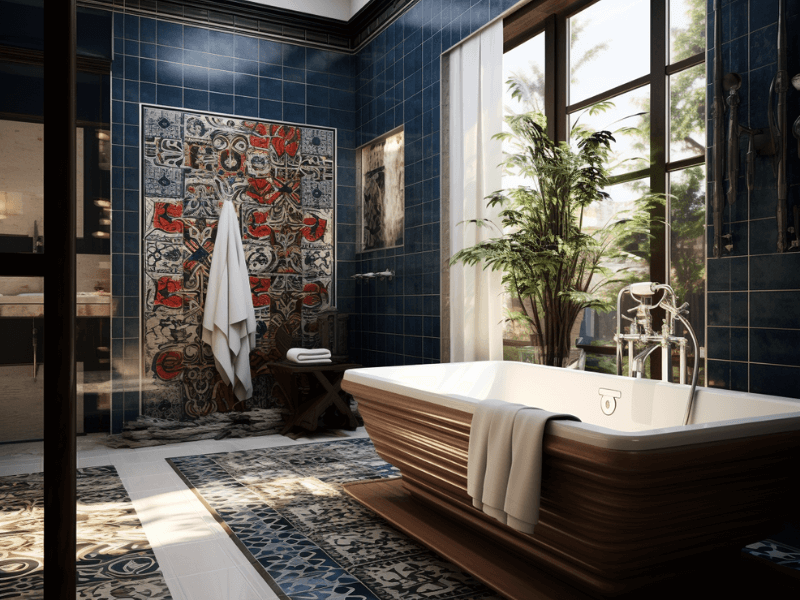Looking to give your bathroom a fresh, new look without breaking the bank? Peel-and-stick tiles may just be the solution you’re seeking.
Quick to install and available in an array of styles, these tiles offer a handy DIY solution. But the big question is – are peel-and-stick tiles suitable for bathrooms, considering the high moisture levels? Let’s dive into it, just like we would into an aquarium discussion about using Super Glue safely.
Just as Super Glue needs the right environment and preparation to work effectively in an aquarium setting, peel-and-stick tiles also require consideration and planning to function optimally in a bathroom.
The constant humidity and water splashes could be challenging, but fear not! We’ll guide you through this journey, ensuring your new tiles stick around as long as your fish do.
The Basics: A Quick Dive into the Bathroom Tile Checklist
- Peel-and-stick tiles can work well in bathrooms
- They need proper surface preparation for optimal adhesion
- High-quality, waterproof adhesives are crucial
- Regular maintenance can keep your tiles looking fresh and in place

The Bare (Bathroom) Necessities: Factors That Impact Results
Much like Super Glue’s behavior can be influenced by conditions in an aquarium, several factors can affect the success of peel-and-stick tiles in a bathroom:
- Surface Preparation: A clean, dry, and even surface is a must for tiles to stick correctly. Like cleaning aquarium rocks before attaching plants, ensure your bathroom walls or floor are free of dirt, grease, and moisture.
- Quality of the Tiles: Not all peel-and-stick tiles are created equal. Some may not withstand the bathroom’s humid conditions as well as others. Look for tiles designed for bathroom use, typically made of vinyl and are water-resistant.
- Bathroom Conditions: The bathroom’s ventilation and humidity levels can affect tile adhesion. Well-ventilated bathrooms with lower humidity levels are more conducive for these tiles.
Bathroom Bootcamp: Key Steps for Lasting Results
- Preparation: Just as you would prepare an aquarium before introducing Super Glue, thoroughly clean and dry your bathroom surface before applying the tiles.
- Apply Pressure: After sticking, apply pressure to ensure the tile adheres properly to the surface. A roller can be helpful for this.
- Curing Time: Allow tiles to cure fully, typically 24 to 48 hours, before exposing them to water or steam.
- Regular Maintenance: Clean your tiles regularly to keep them in the best condition. Remember, the less water exposure, the better!
Sticky Features: Ideal Adhesive Characteristics for Bathroom Use
As you’d check the properties of Super Glue before using it in your aquarium, the adhesive on your peel-and-stick tiles should also be carefully examined.
Look for:
- Water Resistance: The adhesive should be resistant to water to ensure tiles remain in place despite the bathroom’s humid conditions.
- Fast-Drying: A quick-drying adhesive will help speed up the installation process and decrease the likelihood of the tiles shifting or peeling before they’re fully set.
- Strong Bond: The adhesive should form a strong bond with the surface to withstand the steam and splashes typical in bathrooms.
Conclusion: Making a Splash with Peel-and-Stick Tiles
Much like how Super Glue can safely secure elements in your aquarium if used correctly, peel-and-stick tiles can be a fabulous and cost-effective choice for bathroom revamps, when used with care and consideration.
Make sure to select quality tiles, prepare your surface properly, and take care of your tiles once installed. With a bit of patience and the right steps, you’ll have a bathroom that not only makes a splash but sticks the landing too!


